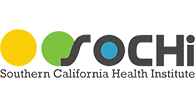Medical administrative assistants are the backbone of healthcare offices, ensuring daily operations run smoothly while maintaining top-notch patient care. If you’ve been wondering what this role entails and whether it’s the right career path for you, you’ve come to the right place. This blog will cover everything you need to know about a medical administrative assistant’s responsibilities, skills, and career prospects.
What Does a Medical Administrative Assistant Do?
Medical administrative assistants, also known as medical office assistants or healthcare administrative assistants, handle a combination of administrative tasks and medical office duties. They act as patients’ first point of contact and help healthcare facilities maintain efficiency.
Unlike clinical medical assistants who work directly with patients during exams and treatments, medical administrative assistants focus primarily on managing the front office. Their work ensures that doctors, nurses, and other healthcare providers can focus solely on patient care.
Key Responsibilities of a Medical Administrative Assistant
1. Patient Communication and Scheduling
One of the most prominent roles of a medical administrative assistant is managing interactions with patients, ensuring they have a pleasant experience.
- Scheduling appointments for patients while avoiding scheduling conflicts.
- Managing phone calls to respond to inquiries or transfer calls to healthcare providers.
- Greeting patients warmly and ensuring they have all necessary documents.
- Gathering and verifying patient information during the check-in process.
2. Medical Records Management
Accurate record-keeping is essential in any healthcare setting, and medical administrative assistants play a critical role in maintaining these records.
- Inputting and updating patient data in electronic health record (EHR) systems.
- Handling medical coding and billing to ensure insurance claims are processed correctly.
- Ensuring the confidentiality and security of all medical records in compliance with HIPAA regulations.
3. Office Coordination
Efficient office operations are managed behind the scenes by skilled administrative assistants.
- Coordinating schedules for healthcare providers, ensuring smooth workflows.
- Ordering and managing office supplies to maintain an organized work environment.
- Preparing reports, documents, and correspondence for internal and external purposes.
4. Insurance and Billing Support
Medical administrative assistants often assist with the complex realm of insurance and billing.
- Verify insurance coverage for patients and explain any deductible or co-pay requirements.
- Submitting insurance claims and following up on any denials or payment delays.
- Answering billing-related questions from patients and providing them with clarity on invoices.
5. Supporting Healthcare Staff
Medical administrative assistants are supportive in ensuring that doctors and nurses can focus entirely on patient care.
- Assisting with scheduling, reminders, and cancellations to maximize productivity.
- Preparing examination rooms for patients by ensuring all necessary supplies are available.
- Managing incoming faxes, emails, and correspondence to streamline communication.
Skills Needed to Succeed as a Medical Administrative Assistant
To excel in the role of a medical administrative assistant, you’ll need a combination of hard and soft skills tailored to the unique environment of a healthcare facility.
Hard Skills
- Proficiency in EHR systems: Ease with medical billing software and patient databases.
- Medical terminology knowledge: Understanding terms commonly used in healthcare to accurately record and communicate information.
- Clerical skills: Strong attention to detail in scheduling, record-keeping, and other administrative tasks.
Soft Skills
- Communication: Clear and empathetic communication to put patients at ease.
- Organization: The ability to juggle multiple responsibilities without missing important details.
- Time Management: Staying on top of tight schedules and office demands.
- Adaptability: Adjusting to emergencies or changes in workflow with poise.
Career Outlook for Medical Administrative Assistants
Medical administrative assisting is a growing career field. With the healthcare industry expanding and the need for accessible services increasing, demand for skilled administrative professionals continues to be strong.
Job Growth
According to the U.S. Bureau of Labor Statistics, employment for medical secretaries and administrative assistants is expected to grow 8% from 2021 to 2031, faster than the average for other occupations.
Average Salary
The average salary for a medical administrative assistant in the United States falls between $35,000 – $45,000 annually, depending on location, experience, and the type of employer.
Work Settings
Medical administrative assistants can find roles in a variety of healthcare settings:
- Hospitals
- Private clinics
- Long-term care facilities
- Specialty practices (pediatrics, dermatology, etc.)
- Diagnostic labs
How to Become a Medical Administrative Assistant
If this career path aligns with your interests and goals, here’s a step-by-step guide to becoming a medical administrative assistant.
1. Earn a High School Diploma or Equivalent
Basic educational requirements for this position often include a high school diploma or GED.
2. Complete a Training Program
While some roles allow on-the-job training, most employers prefer candidates who have completed programs in medical administration or office assisting, typically offered at community colleges or vocational schools.
3. Gain Certifications
Earning certifications, like the Certified Medical Administrative Assistant (CMAA) from the National Healthcareer Association, can boost your resume and increase job competitiveness.
4. Build Experience
Start building relevant experience through internships, externships, or entry-level clerical positions in healthcare facilities.
5. Develop Your Skills Continually
Stay updated on new software, EHR advancements, and healthcare protocols to remain a valuable asset.
Why Choose a Career as a Medical Administrative Assistant?
The role of a medical administrative assistant offers plenty of rewards beyond the paycheck. It’s an opportunity to work in a fast-paced, meaningful environment, helping others while learning valuable skills. Whether starting your career or switching fields, this job is an excellent choice for those who thrive on organization and patient interaction.
Take the First Step Toward a Rewarding Career
Medical administrative assisting is a fulfilling career that merges organization with human connection. If you’re ready to explore this field further, consider enrolling in a certification program today. With the growing demand for healthcare support roles, there’s no better time to start building your career.




